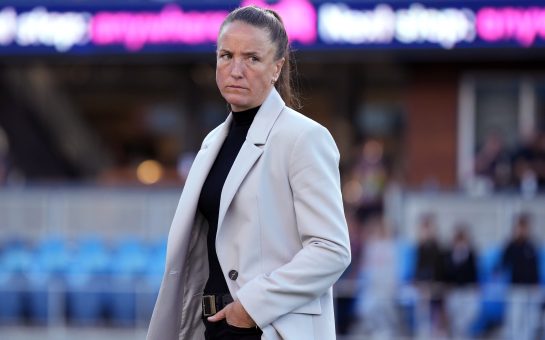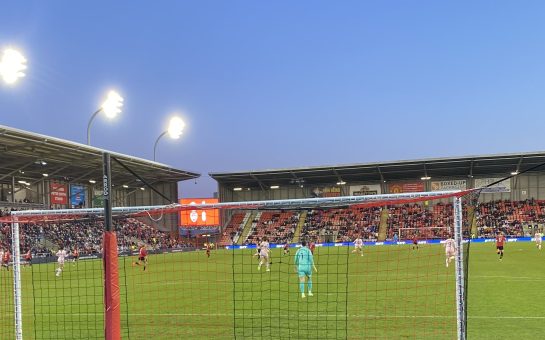The Football Association claims women’s football is well on the way to knocking men’s rugby and cricket off their perch and becoming the second most popular team sport in the country by 2018.
Increased participation was part of the FA’s five-year plan (‘Game Changer’ strategy) to capitalise on the popularity of the Team GB’s women during the London Olympics and the momentum built since the introduction of the semi-professional Women’s Super League.
This season has seen record attendances at the new look two-tier WSL league games and head of women’s leagues and competitions at the FA Katie Brazier, whilst delighted with the progress made, has warned about the potential problems of expanding rapidly.
“We want to be the second most popular team game after men’s football – this is achievable and we have to believe it is,” the former director of sponsorship at British Swimming said.
“This season we couldn’t have asked for more – over 100 hours of broadcast coverage which is a huge increase on last year. We have a shop window now.
“Watching women’s football is far more viable than it ever was before but at the FA we have to be careful that we don’t expand too quickly because we need to ensure that we have the depth of talent to maintain the high standards.”
Wembley was packed with more than 70,000 fans when Team GB defeated Brazil during London 2012 and since then England matches have attracted respectable audiences on the BBC.
However Brazier admits that more needs to be done to increase the profile of the sport.
“We would like to have female players as household names,” she said.
“We are absolutely delighted by the level of support we have got so far this season but we aren’t quite there yet with the general public.
“However if we continue to get the product right, especially the quality on the pitch, then hopefully the media and the nation will support us.
“We want to help girls inspire to be footballers and make a living out of playing which has certainly not been the case in the past.”
To help increase participation the FA has provided additional investment and a new commercial strategy which markets the women’s game separately to the men’s and sponsorship and broadcasting agreements are separated out between the two.
Rachel Pavlou, National Women’s Football development manager said: “We’ve made great strides but we must continue to encourage more young girls to get interested in the game and stick with it.
“It is a massive statement that we are trying to make and we have to take this opportunity and make it count. There is a real passion for women’s football in this country so we need to use this momentum.”
Manchester City have already shown their support by signing up to the ‘FA Women and Girl’s’ programme earlier this year – a community coaching programme demonstrating a long term commitment to women’s football.
The grassroots football sessions are for 14-25 year olds with professional clubs across the country – so far 88 teams have signed up to the two-year scheme which has £2.4 million invested into it.
Jill Scott, the Man City midfielder and one of the players employed by City in the Community to take part in delivering the classes, is delighted to be a part of increasing the game’s popularity.
“I’m very excited about my role in the community and I hope it encourages a lot of girls and women to take up the game,” the England international said.
“City are showing that they have a real commitment to the game and I hope women’s football will just continue to grow and grow.”
Main image courtesy of England Football Official via YouTube, with thanks.



